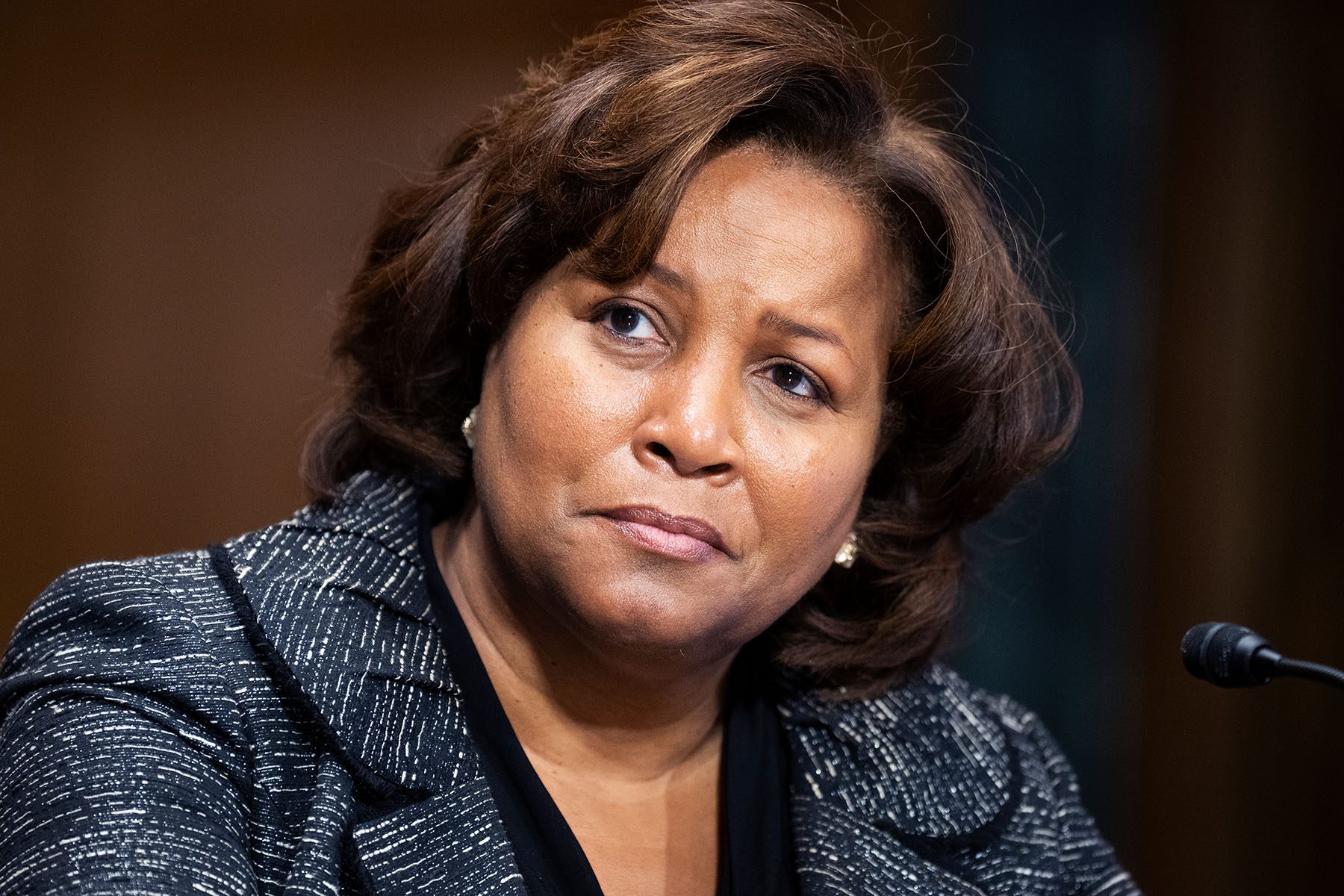Judge J. Michelle Childs, who was on the short list to replace former Supreme Court Justice Stephen Breyer, was confirmed by the Senate on Tuesday to sit on Washington, D.C.’s prestigious federal appellate court. She will be one of two women of color on the court, which is generally regarded as the nation’s second highest.
The Senate voted 64-34 to confirm Childs, with 15 Republicans backing her. Only one other Biden nominee for a federal appellate court has received that many votes from Republican members.
“With over 15 years of experience on the bench, Judge Childs is exceptionally qualified to serve on the D.C. Circuit. Her outstanding qualifications make it no surprise that she has received strong, bipartisan support from her home state’s delegation,” Senate Judiciary Committee Chair Dick Durbin said in a statement.
The U.S. Court of Appeals for the D.C. Circuit has produced more Supreme Court justices than any other federal court. Four of the nine current justices previously served there. The D.C. Circuit tends to handle sensitive and high-profile issues related to national security, election law and federal agencies. This has included cases concerning the January 6 Capitol breach in 2021.
Childs becomes the only Black woman on the court, which has 11 active seats and two remaining vacancies for President Joe Biden to fill. One of those vacancies was previously held by Justice Ketanji Brown Jackson, who formally joined the Supreme Court on June 30.
Childs gained national attention earlier this year as one of Biden’s front-runners to replace Breyer, who in January announced his intention to retire from the high court. At the time, Childs, 56, had served as a U.S. District Court judge in South Carolina for 12 years. She was also a South Carolina state judge from 2006 until 2010.
As a Supreme Court contender, Childs’ underrepresented background as a public university graduate appealed to those calling for wider experiential diversity among the justices. She received her bachelor’s from the University of South Florida and her law degree from the University of South Carolina. She also worked at one of South Carolina’s largest law firms, Nexsen Pruet, and for the state government, in the South Carolina Department of Labor and as a commissioner on the South Carolina Workers’ Compensation Commission.
During Biden’s search for potential nominees to replace Justice Breyer, Childs had strong support from two prominent politicians from her home state: House Majority Whip Jim Clyburn, the Democrat whose support helped Biden notch his first primary victory, and Republican Sen. Lindsey Graham.
Ultimately, Biden chose Jackson, who also sat on the D.C. circuit court for eight months before her Supreme Court nomination. While Childs’ new position on the D.C. circuit court and bipartisan appeal put her in a prime position for future Supreme Court consideration, it’s unclear whether another Supreme Court vacancy will open up during Biden’s presidency or whether he will look to address other diversity gaps after fulfilling his campaign promise to appoint the first Black woman to the court.
No Asian, Indigenous, or out-LGBTQ+ person has ever held a seat on the nation’s highest court. The D.C. Circuit Court, where many administrations would look for potential nominees, includes one Indian-American woman, Judge Neomi Rao, who was appointed by former President Donald Trump. Biden has also nominated Judge Florence Pan, a Taiwanese-American woman, to replace Jackson on the D.C. Circuit Court. Her nomination is still working through the Senate Judiciary Committee.
During his time in office, Biden has selected federal court nominees with racial and professional diversity. He has appointed 16 Black women to judicial posts, according to data from the Federal Judicial Center, though a few, like Childs held positions on lower federal courts. He has also appointed 10 Asian women and eight Latina women to federal court positions. The Federal Judicial Center database does not include sexual orientation or gender identity beyond male and female.








